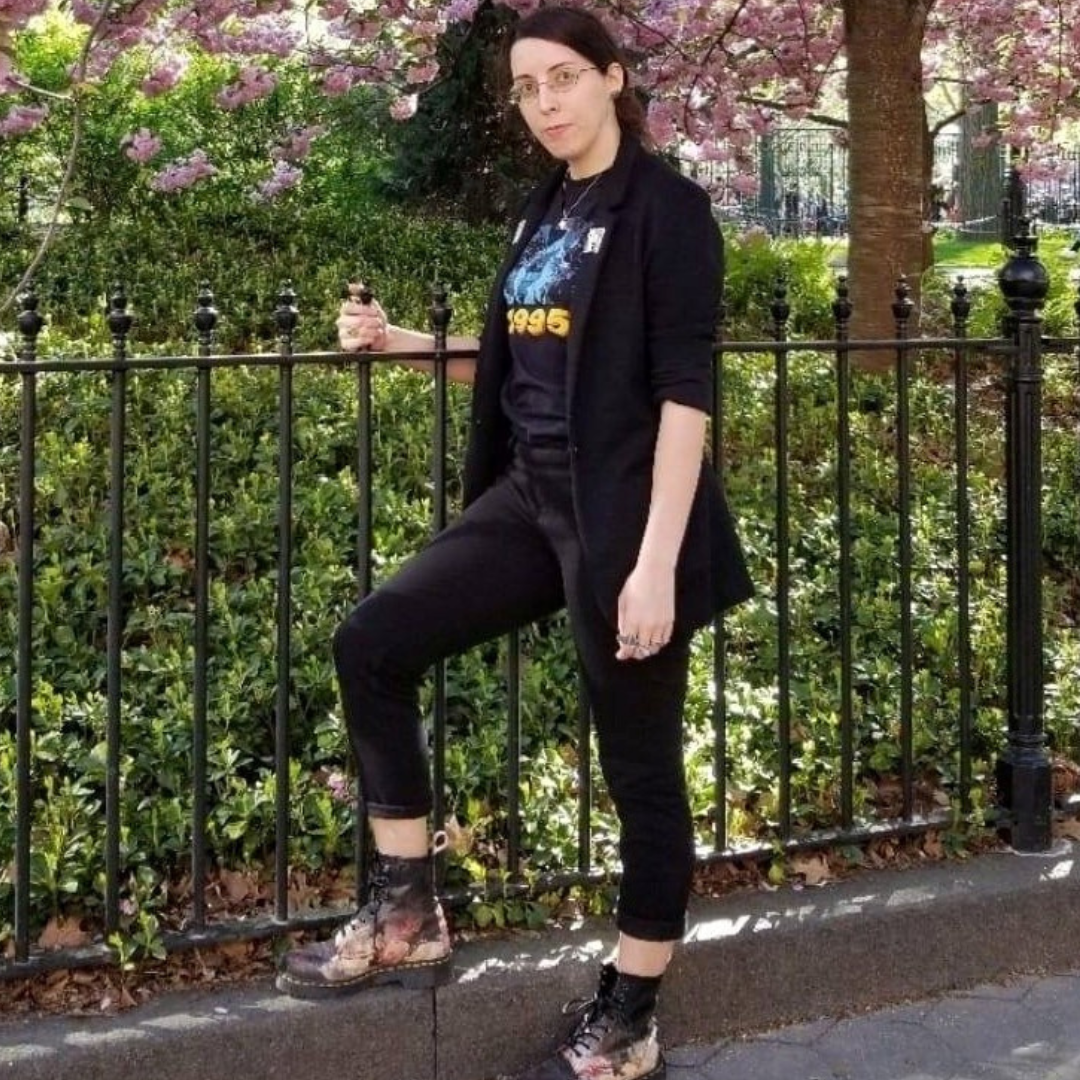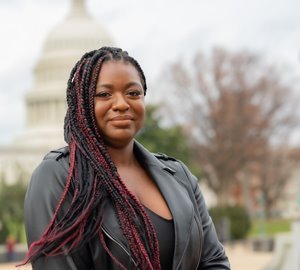Understanding Arts Service Organizations in a Changing Arts Ecosystem
A research study which aims to understand the role, impacts and ongoing evolution of arts service, intermediary, and regranting organizations in a post-pandemic world.
WHY?
Arts service, intermediary, and regranting organizations (ASOs) play a critical role in nourishing the United States arts ecosystem.
Primarily serving individual artists and artmaking entities, ASOs frequently provide the greatest benefits to the least resourced artists and groups through capacity building, networking, advocacy, grantmaking, arts education, and/or industry research.
The importance of this role became more pronounced during the pandemic, as ASOs became first responders to a crumbling arts economy and an avalanche of needs, the most pressing coming from individual arts workers who immediately lost work both inside and outside of the arts and were unable to pay for basic necessities.
A better understanding of their story, typology framework, service roster, support structure and ongoing evolution is necessary as the field recovers and transforms.
UPCOMING EVENTS
Phase 1 Research Release Event
Friday, May 31, 2024
2:00 p.m. – 4:00 p.m. EST
Join us for a virtual event showcasing the data findings from Phase One. We will also unpack the learnings, challenges, and focus areas for the next phase of this research— including the release of a new data visualization tool and national ASO list which will act as an open data resource for the sector.
RSVP is required. ASL Interpretation & Closed Captioning will be available. Stay tuned for more updates and featured speakers.
HOW & WHEN?
Process & Activities
An iterative research approach that includes qualitative and quantitative data collection efforts will most effectively guide the research process, with activities organized into four research phases, each with a corresponding reporting and dissemination process. Each phase of the research aims to address a series of key research questions, undertake a series of activities and provide a set of deliverables, including public convening and interim publications of findings. Currently, this project is in Phase 1.
-
May 2023-May 2024
Preparation & Background Research
Establishment of Advisory Cohort & Subject Typology
Development of Research Methodology, Tools & Study Universe
-
Summer 2024-Spring 2025
National Quantitative Data Collection from ASOs
Research Subject Engagement
-
Summer 2025-Spring 2026
Regional Qualitative Data Collection from ASO stakeholders
Research Subject Engagement
-
Summer 2025 - Spring 2026
Development of Recommendations for future of ASOs
Dissemination of Report + Findings
DIVE DEEPER
-
This study is anchored in ADC Consulting’s research values and principles. In practice, the application of these values across the research process includes:
• Establishment of a paid advisory cohort of members of the arts and cultural community that is diverse across lived experience, expertise, geography, and who actively engage in the work of ASOs in different capacities.
• Engaging in a three part-research process that considers multiple modalities, perspectives, and data collection processes that aim to amplify the work of individuals providing ASO-style services.
• Acknowledging the ongoing impact the pandemic has on both the research process, the individuals who are a part of the process, and the cultural sector.
• Acknowledging the ways in which white supremacy, war, economic precarity, and climate change are affecting the arts and culture sector and therefore the outcome of this study.
• Exhausting all possible resources to ensure a large cross-section of members of the community are able to contribute to the research process by sharing their stories, ideas and areas of expertise through interviews and focus groups, and through that process seeking their consent, compensating them for their time, and communicating transparently about the purpose and use of their information and/or contributions.
• Understanding that our research alone cannot solve all of the problems it aims to observe, explore or influence, including acknowledging our limitations as humans and researchers. This means working with others, institutions and individuals, to both spread the word of the work and to advocate for the application of its findings in ways that move collective goals of liberation and wellbeing for artists, creative workers, and their communities.
-
This research aims to better define and tell the story of ASOs as members of the larger arts ecosystem, and in the context of a changing funding landscape and struggling arts sector, provide insights into the paths ASO’s can take to move towards sustainability and better serve their constituencies. Therefore, it is meant to first and foremost benefit ASOs and the stakeholders who impact their work and whom they serve. This includes but is not limited to:
• ASO workers — as the individuals tasked with carrying the work of ASOs forward
• Funders of ASO’s (private and public) and policy makers — as the stakeholders whose decisions impact the resourcing of ASOs and their ability to remain operational
• Arts organizations and individual artists — as the intended beneficiaries of the work ASOs do and their raison d'etre.
Our hope is to more accurately tell the story of the importance of ASOs in the arts ecosystem, what makes them effective and/or ineffective, and what role they can play in better serving artists and their communities. Underlying this belief in ASO’s is the acknowledgement that arts and culture are critical parts of healthy societies, and so it is vital to ensure the systems, resources, and relationships that exist properly nurture, sustain, and strengthen artists, creative workers, and their communities. As members of that ecosystem, ASO’s play a role in this network of support and can either contribute to their wellbeing or play a role in exacerbating their conditions. To that end the research questions guiding phase 1 of this research include:
• What is the history of ASOs? How have they evolved over time in response to shifts in the arts ecosystem and the changing needs of individual arts workers and arts entities?
• What is the ASO typology framework?
• What information or data do we need to collect to understand ASOs?
Additional research questions spanning future research phases can be found in the research overview.
-
• May – October 2023
Preparation and background research• November – December 2023
Establishment of advisory cohort & subject typology• December – January 2024
Development of research values & refinement of research process• February 2024
Writing of historical context; sectoral interviews & focus groups; fundraising for Phase 2• March 2024
Development of data collection instruments & methodology; defining of study universe• April 2024
Writing of Phase 1 Analysis• May 2024
Publication of analysis; public convening
WHO?
Meet the Team
Grounded in values of equity, collaboration, and intentional relationship building, primary research activities will be led by Alejandra Duque Cifuentes, in collaboration with research consultant Carrie Blake, and a team of research and administrative assistants. With a combined track record of more than 30+ years of experience in arts and culture and research, and extensive first hand and support experience within the arts service sector, Ms. Blake and Ms. Duque Cifuentes are long-time collaborators and ideally positioned to oversee such an inquiry on this segment of the sector.
-

Alejandra Duque Cifuentes
Project Lead
-

Carrie Blake
Research Consultant
-

Maleni Palacios Delgado
Administrative Assistant
-

Izzy Dow
Research Assistant
-

Jessica McFarlane
Research Assistant
-

Katherine Mostek
Research Assistant
-

Leonardo Figueiredo
Data Analyst
-

Satsu Holmes
Research Assistant
-

Tara O'con
Research Assistant
WHO?
ASO Cohort
We have brought on fourteen ASO leaders and experts to help guide the development of the research methodology and ensure that every aspect of the study is grounded in the experiences of the people leading and impacted by this work.
-

Caitlin Strokosch
President & CEO,
National Performance
Network -

Corinna Schulenburg
Director of Communications
& Research, Theatre
Communications Group -

Daniel Phoenix Singh
Artistic Director,
Dakshina/Daniel Phoenix
Singh Dance Company -

David Blasher
Executive Director,
The MAP Fund -

Eliza Tudor
Executive Director,
Nevada County
Arts Council -

Joy Young
VP of Programs,
South Arts -

Melissa Ford Gradel
Executive Director,
Poets & Writers -

Dr. Natasha R. Moreland Spears
Co-Executive Director,
The International Association
of Blacks in Dance -

Quanice Floyd
Executive Director,
National Guild for
Community Arts Education -

Roberto Bedoya
Cultural Affairs Manager,
City of Oakland, VA -

Ryan Stubbs
Senior Director of Research,
National Assembly of
State Arts Agencies -

Theresa Hubbard
CEO,
Fractured Atlas -

Vicky Holt Takamine
Founder,
PA’I Foundation -

Wendy Levy
Executive Director,
Alliance for Media
Arts & Culture
ADC Consulting is a fiscally sponsored project of IndieSpace. The first phase of Understanding Arts Service Organizations in a Changing Arts Ecosystem is made possible with the generous support of the Mellon Foundation. ADC Consulting is a grantee of the Mellon Foundation. The research, its process, and outcomes is not a commissioned project of the foundation and does not represent its views.






